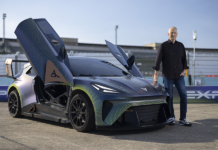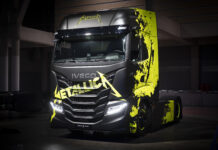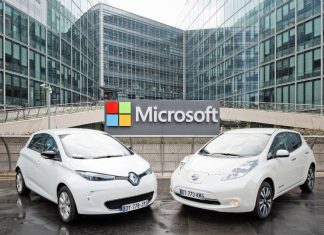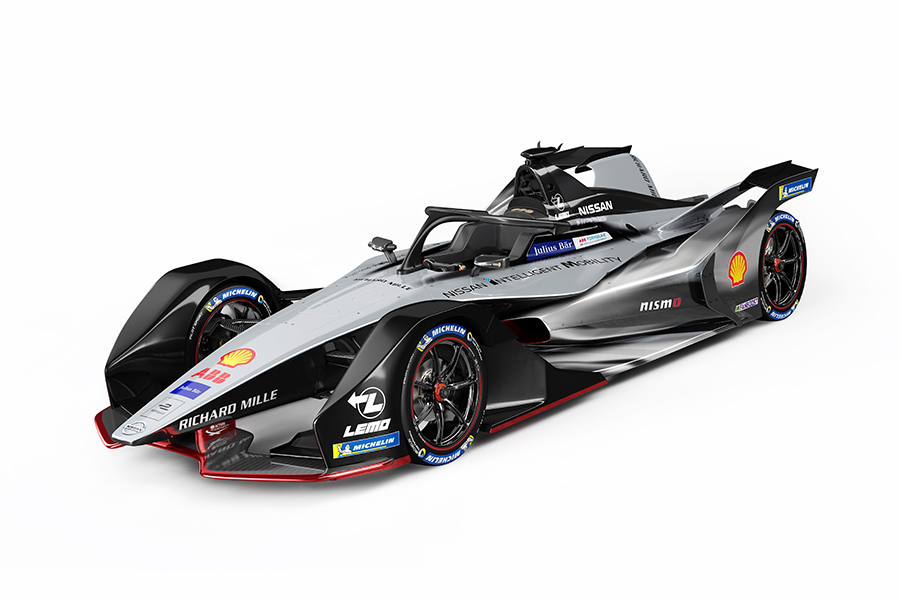
After announcing its arrival into the ABB FIA Formula E Championship in 2017, Nissan partnered with seasoned Formula E outfit e.dams (formally racing partner of French manufacturer Renault) to become Nissan e.dams.
Nissan is the first Japanese manufacturer to enter the series and is a world leader in the design and manufacture of all-electric cars. With over 365,000 Nissan LEAF vehicles sold since the model debuted in 2010, Nissan has made use of its existing EV experience to develop the all-new powertrain for its Formula E race car. In turn, the learnings from the track will shape the next generation of EVs from the Japanese car maker.
Buzz talks to Michael Carcamo, Global Motorsports Director, Nissan.
How has participating in motorsports contributed to Nissan’s growth?
60 years participating in a variety of motorsports has given us the opportunity to be innovative, stretch our minds in what we can do, try new technologies at a much faster pace and push the boundaries of what is possible, and break barriers of what you think is not possible. Motorsports is really about constraints. And in racing, engineers can truly explore what is possible within any given constraint. It trains engineers to think, react and explore.
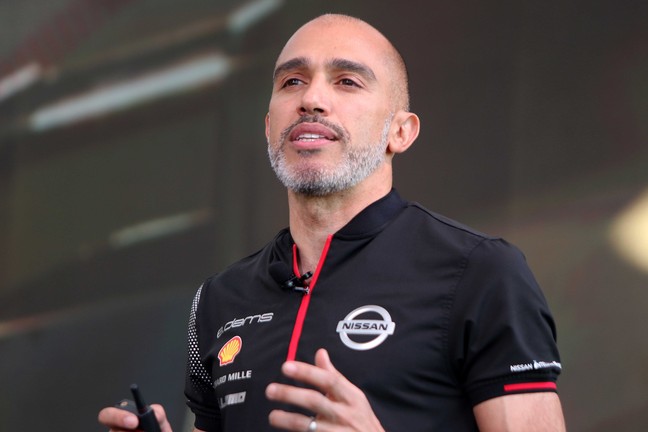
Why is Nissan entering Formula E?
Formula E represents the best opportunity for us to explore Nissan Intelligent Mobility and everything that surrounds our future vision. We also want to bring excitement and emotion to our EV products, since we are the market leaders, and Formula E lets us do that. We pride ourselves on innovation and excitement for everyone and Formula E is the perfect vehicle to deliver this message.
How will participating at Formula E help to improve your EVs?
Our history in EVs goes back 70 years to our first EV in 1947. After 400,000 EVs sold and 10 billion kilometers of EV mileage, we’ve learnt a few things and one of them is that the control systems will really push the performance and capabilities of EVs in the future. We hope to accelerate this learning with extreme conditions of racing to then feed back into road car development. On the hardware side, we can’t explore things like weight, material technology, or efficiency on a production car basis. You have to explore this in racing to get maximum performance.
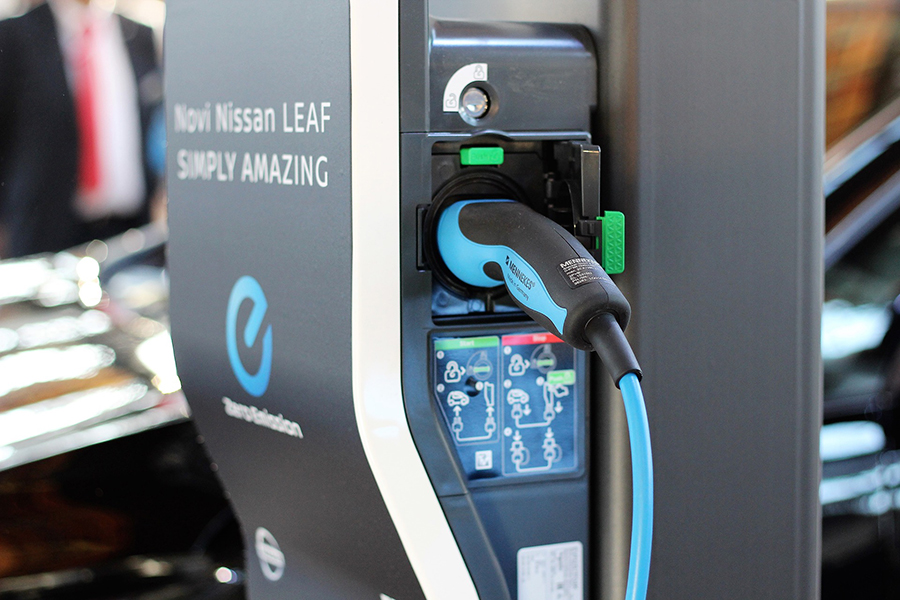
How is Formula E different?
Formula E provides a different sensory experience. People assume there is no sound, but you can hear all aspects of the car: the tires, the cars touching. You can also hear the excitement of the crowd pushing and willing the drivers on. You can listen to people speaking about what is happening on the track. People can be a part of the motorsports without the sound of the engine. This is very unique—it’s the new sound of speed.
“Once people see an EV racecar and think that it is normal, it will be a natural extension for their car to be an EV.” Michael Carcamo, Global Motorsports Director, Nissan
How participating in Formula E will support Nissan’s electrification strategy?
By giving us an outlet to talk about the different pillars of Nissan Intelligent Mobility and how the cars are driven, powered and integrated. Formula E will help us put the spotlight on what we are doing in the future: electrifying our entire portfolio, not only through EVs but through e-power. Our recently launched IMq, for example, is the next generation of electric crossovers with e-power. Also, once people see an EV racecar and think that it is normal, it will be a natural extension for their car to be an EV.

What can you tell us about the Gen2 car and the innovations it incorporates?
Gen2 is an all-new car that looks spectacular. It features increased range with a battery that is almost double the capacity of the last generation and increased power, up to 250 kW. The car itself is challenging to drive, which makes it a really attractive sport for the drivers.
What about the Leaf Nismo RC?
The Leaf Nismo RC is unique in that the project started at the same time we were trying to launch a Formula E team. We allowed the engineers a bit of freedom. We asked them to bridge the gap between a Formula E car and the Leaf. We have production parts, production motor and battery technology in a carbon racing car. Now it is really accessible. The power train is the same as in the Leaf, but the performance is akin to a supercar. The Leaf Nismo RC stretches our imagination. (Note the Leaf Nismo RC is track only, and no plans to go into consumer production).
Do you like racing and motorsports yourself?
It’s definitely my first love as an engineer. I can remember my first car show and my first race. I am fortunate that Nissan has given me the opportunity to run this project and really explore something I love.
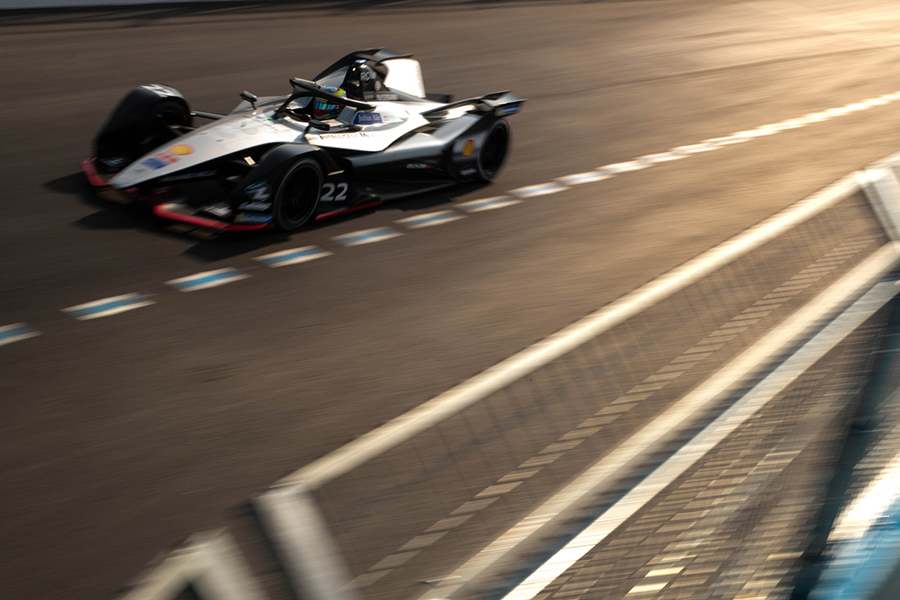
What do you enjoy most about your current role?
My first racing experience was with RC cars, which happened to be electric. I would have never imagined then that today we would be racing electric cars. This is really exciting. EVs are going to change the world. It is special to be part of that![]()





